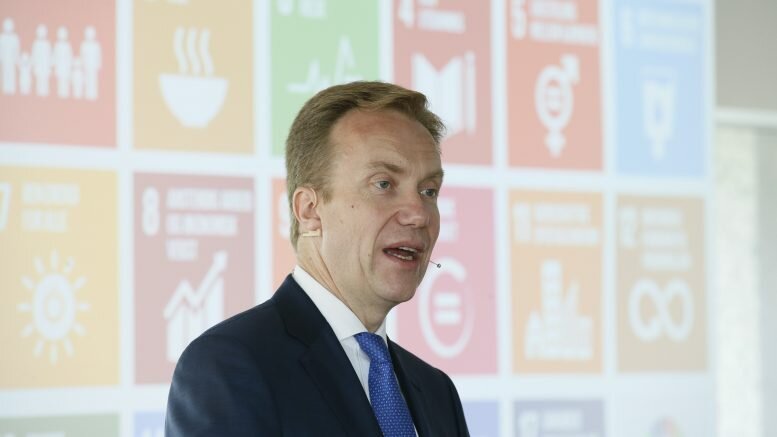The fight against overfishing is the most important issue for Norway when Foreign Minister Børge Brende attends a large Ocean conference this week.
Sustainable fishing, marine conservation, pollution, climate change and ocean economics is on the agenda when foreign ministers, government officials and scientists meet in Washington on Thursday and Friday.
– What I am going to shine a light on and make my main priority is the fight against illegal fishing. Globally, it is a huge problem. Many fish species are threatened, Brende said to news channel NTB just after he arrived the US capital on Wednesday night.
31 percent of the world’s fish stocks are currently harvested at unsustainably high levels, and a further 58 percent is being fished at a maximum level which prevents growth.
To remove harmful subsidies
Twelve countries, including Norway and the United States, announced Wednesday night that the World Trade Organization (WTO) will work to overcome overfishing that empties the oceans.
“To address this acute problem, we will act to remove harmful subsidies, including subsidies that contribute to overfishing and overcapacity,” they said in a joint statement, but didn’t say which countries currently have such subsidies.
According to Greenpeace, China has 2,500 fishing boats at sea at any time . This is ten times as many as the United States. The environmental organization believes unreported fuel subsidies contribute to the Chinese fishing fleet having a huge overcapacity and contribute to overfishing, writes AFP.
Common front with US
Brende had dinner with US Secretary of State John Kerry on Wednesday , who is the host of the conference and seeking to develop a strategy for how Americans together with the seafaring nation Norway and the rest of the world can meet the major environmental challenges facing the world’s oceans.
– Marine resources must be high on the agenda going forward if we are to achieve sustainability goals. The world’s population will be 10 billion people in 2050. The sea is important for food production, climate and transport, says Brende.
– We also need to create an international plan of action to deal with the plastic that end up in the oceans. It may mean using materials that easily decompose and to have stricter restrictions relating to dumping waste in the sea, continues Brende.
Plastic a major problem
This also applies micro plastic with plastic particles of less than 5 millimeters, which are used in among other things, scrub creams and toothpaste. The particles are so small that they go straight into the sea, where they are eaten by fish and plankton.
– It will be taken up in the food chain from plankton to fish then to humans and animals. It is a form of environmental contaminants, says Brende.
– We must follow the precautionary principle and take it seriously. We must not end up with that regret in 20 years time, he adds.
More than a quarter of the fish sold in markets in Indonesia and California have plastic in their stomachs, both micro plastic and residue from plastic bags and bottles, writes The Independent. Also in Norway we have found micro-plastic in fish, but so far the use of such plastic particles are not prohibited.
– The study shows that 3 percent of cod along the Norwegian coast have plastic in their stomachs, said researcher David Eidsvoll at the Norwegian Institute for Water Research (NIVA) to NTB in August.
Source: NTB scanpix / Norway Today
——–



